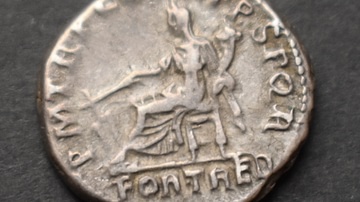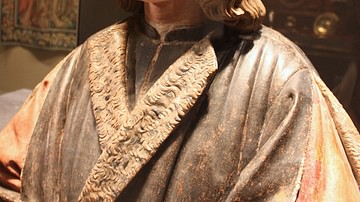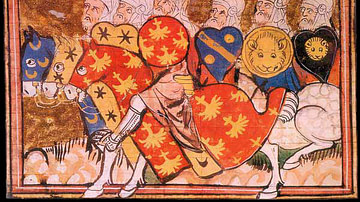Search
Remove Ads
Advertisement
Summary 
Loading AI-generated summary based on World History Encyclopedia articles ...
Search Results

Video
How did Dracula become the world's most famous vampire? - Stanley Stepanic
View full lesson: http://ed.ted.com/lessons/how-did-dracula-become-the-world-s-most-famous-vampire-stanley-stepanic Over a hundred years after his creator was laid to rest, Dracula lives on as the most famous vampire in history. But this...

Article
Authority in Ancient Rome: Auctoritas, Potestas, Imperium, and the Paterfamilias
Authority in ancient Rome was complex, and as one can expect from Rome, full of tradition, myth, and awareness of their own storied history. Perhaps the ultimate authority was imperium, the power to command the Roman army. Potestas was legal...

Definition
Battle of Bosworth
At the Battle of Bosworth (aka Bosworth Field) in Leicestershire on 22 August 1485 CE, the Yorkist king Richard III of England (r. 1483-1485 CE) faced an invading army led by Henry Tudor, the figurehead of the Lancastrians. It was to be a...

Article
The Poems of Christopher Marlowe
Christopher Marlowe (1564-1593), also known as Kit Marlowe, was one of the most influential dramatists of Elizabethan theatre. Though he is best known for his plays, his poems were very popular in their time and are still well-regarded today...

Definition
Petrarch
Petrarch (1304-1374 CE), full name Francesco Petrarca, was an Italian scholar and poet who is credited as one of the founders of the Renaissance movement in art, thought, and literature. Petrarch actively searched for 'lost' ancient manuscripts...

Article
Hipponax & Misogyny in Ancient Greece
It has always been recognized that women in the ancient world were considered only a little higher in value than the man's cattle or plow and, sometimes, not even accorded that kind of respect. Examples of misogynistic attitudes toward women...

Definition
Henry VII of England
Henry VII of England ruled as king from 1485 to 1509 CE. Henry, representing the Lancaster cause during the Wars of the Roses (1455-1487 CE), defeated and killed his predecessor the Yorkist king Richard III of England (r. 1483-1485 CE) at...

Image
The Judgement of Paris
The painting shows the Judgment of Paris, an event in Greek mythology. Figures, from left to right: The goddesses Athena, Hera and Aphrodite, then Aphrodite's son, Eros, and Paris.
Oil on canvas, 1904. Museum of Málaga.

Article
The Spartacus Revolt
The revolt of the gladiator Spartacus in 73-71 BCE remains the most successful slave revolt in the history of Rome. The rebellion is known as the Third Servile War and was the last of three major slave revolts which Rome suppressed. The story...

Article
Saladin & the Unification of the Muslim Front: 1169-1187 CE
Saladin (c. 1137 – 1193 CE), the Muslim ruler who crushed the mighty Crusader army at the Horns of Hattin (1187 CE) and re-took Jerusalem after 88 years of Crusader control, was born in a world where the disunity of the Muslims had allowed...